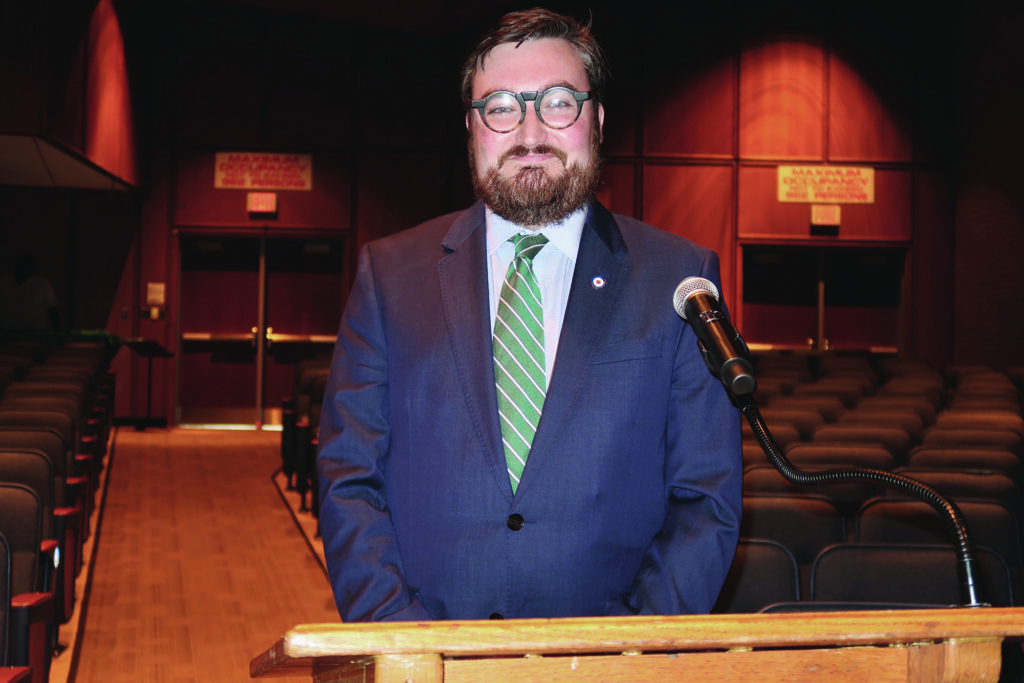Editorial: It’s about veterans’ mental health, not bail reform

Last Thursday, Congressman Lee Zeldin was attacked by a man who jumped onto a trailer at a gubernatorial campaign stop in western New York. Videos showed the man was holding a cat-shaped self-defense keyring with two sharp points in his right hand as he was restrained.
Thankfully, Mr. Zeldin was not hurt. He has since beefed up his security and has not slowed down his campaign for governor of New York State. In a time of frequent mass shootings and political violence, he can count his lucky stars that neither he nor anyone else at the scene was injured, or worse.
But all the commentary and statements that followed seem to have missed a critical point, particularly after the assailant, identified as a troubled Army veteran named David Jakubonis, was released by the judge at his arraignment on a charge of attempted assault, a nonviolent felony.
First, some background: Since 2020, under state law, judges have not been allowed discretion in certain cases. New York’s bail reform eliminated cash bail for most nonviolent charges. That means the judge who arraigned Mr. Jakubonis was barred from setting bail because the local district attorney charged him with attempted assault, a nonviolent crime, and not the higher charge of assault.
As The New York Times and the Albany Times Union have written, had the local DA — a Zeldin supporter — charged Mr. Jakubonis with assault, the judge could have imposed bail and other restrictions. The attempted assault charge precluded that.
It is important to point out that setting bail does not mean a person can’t be free pending a trial; it just means the person under arrest must come up with money to ensure their return to court.
Soon after the incident, reports surfaced about Mr. Jakubonis’ serious mental health issues. It was speculated he was in “mental distress” when he attacked Mr. Zeldin; several reports said he did not know who he was attacking.
The New York Post reported that Mr. Jakubonis’ mental health declined after his medical discharge from the Army in 2012 and the death of his wife. He has been chronically unemployed and is a single parent of twin toddlers. The Post reported that Mr. Jakubonis’ brother now has custody of the children.
In all the news coverage of the incident, far less attention was paid to the plight of a mentally unstable veteran — homeless veterans are not uncommon across the country — than to the issue of the state’s cashless bail policies.
Since the incident, Mr. Zeldin has turned what happened into an attack on both that policy, and his Democratic opponent, Gov. Kathy Hochul, whom he has repeatedly called “soft on crime.” Her position on stiffer gun control laws would appear to be the opposite of “soft on crime.”
Those Americans who willingly serve their country — Mr. Jakubonis was said to have served in Iraq in 2008 — should be the focus of special care upon their return to society. Their needs, mental, physical or both, must be met.
Mr. Zeldin, a veteran himself who has campaigned in the past using the slogan “Vote for a Vet,” has certainly made the state’s bail reform laws a centerpiece of his current campaign. Now, a week later, it feels like the larger issue raised by this incident is how we treat mentally unstable veterans who have bravely served our country.
We’re grateful the congressman was not injured, but so far, he has passed on an opportunity to call more attention to veterans’ mental health needs in favor of a more politically convenient — but less relevant — narrative about bail.








